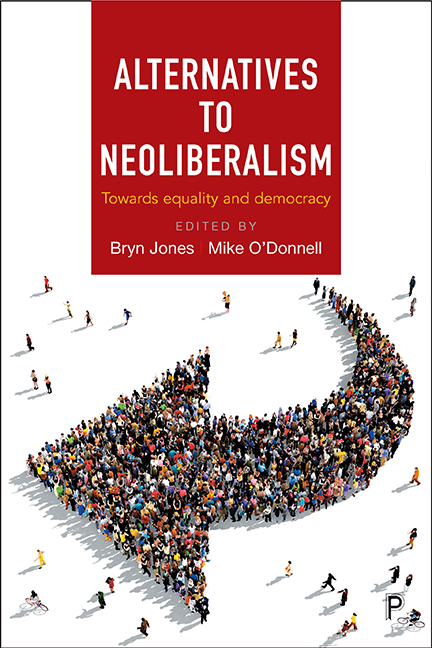Book contents
- Frontmatter
- Dedication
- Contents
- List of figures, tables and boxes
- List of abbreviations
- Notes on contributors
- Acknowledgements
- Foreword
- Editors’ preface
- Introduction: The open-market society and its opponents: an overview
- Part One Alternative paradigms and perspectives
- Part Two Reform within economic and governance restraints: pushing the boundaries
- Part Three Economic and political democracy: restoring the market-civil society balance
- Conclusion: A Brexit from neoliberalism?
- Index
seven - Reform from within? Central banks and the reconfiguration of neoliberal monetary policy
Published online by Cambridge University Press: 05 April 2022
- Frontmatter
- Dedication
- Contents
- List of figures, tables and boxes
- List of abbreviations
- Notes on contributors
- Acknowledgements
- Foreword
- Editors’ preface
- Introduction: The open-market society and its opponents: an overview
- Part One Alternative paradigms and perspectives
- Part Two Reform within economic and governance restraints: pushing the boundaries
- Part Three Economic and political democracy: restoring the market-civil society balance
- Conclusion: A Brexit from neoliberalism?
- Index
Summary
Introduction
It is argued in this chapter that the 2008 financial crisis saw the relative demise of the ‘science of monetary policy’, a policy which embodied all the strongest features of the neoliberal economic policy programme of using market-driven price adjustments as the exclusive mechanism of coordination. Subsequently, it is suggested, the ‘art of central banking’ became the dominant feature of monetary policy making – a new approach that stresses a range of objectives and instruments which have to be judiciously juggled to maintain financial stability. But does the advent of a period of the ‘art of central banking’ signal an outright failure of the neoliberal programme and its replacement by another?
Of course this all depends upon what is meant by neoliberalism. There would be a long debate to be had about this but the favoured framework adopted here is to regard neoliberalism as a regime of governance rather than a form of the state (DuGay and Scott, 2010; Dean, 2014). This is controversial but, at its most general, neoliberalism is considered a regime of governance of the state, where the state is viewed as both an institutionalised apparatus of rule and as a territorial jurisdiction. So there is some continuity in what would generally be termed the liberal market state running through from the 1930s to the 2010s. But such a liberal market state can be characterised as having several mutations in its logics or rationalities of governance. This chapter explores in more detail the changing role and functions of the Bank of England in the context of these rationalities of governance. Do these changes represent a decisive break with the tenets of neoliberal economic policy, or do they represent just a new logic of this long-standing system of governance?
All change at the Bank of England?
In March 2015 the Bank of England (BoE) launched a rather unusual Discussion Paper (Bank of England, 2015). The Bank introduces the paper by pointing out that ‘the Bank of England is one of only a handful of institutions internationally with responsibility for monetary, macroprudential and microprudential policy, and the operation of all of these to achieve policy outcomes’ (Bank of England, 2015, p 1).
- Type
- Chapter
- Information
- Alternatives to NeoliberalismTowards Equality and Democracy, pp. 139 - 158Publisher: Bristol University PressPrint publication year: 2017



